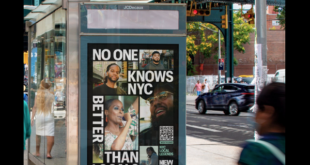[ad_1]
With the Omicron variant now spreading rapidly in nations all around the world, The Bahamas has just updated its entry requirements for foreign travelers.
The Caribbean nation’s Prime Minister Philip Davis announced Thursday that, regardless of their vaccination status, all international visitors must provide proof of a negative COVID-19 test taken within 72 hours of arrival, effective immediately. Previously, the acceptable testing window was five days.
Vaccinated travelers 12 and older can use either a PCR test or a rapid antigen test, while unvaccinated travelers aged 12 and older are required to provide a negative PCR-type test.
Children between the ages of two and 11 must also have a negative result from a test administered within 72 hours of arrival, which can be either a PCR or antigen test.
Entry regulations will become even a bit stricter on January 7, on which date The Bahamas will stop accepting antigen tests altogether, and PCR tests no more than 72 hours old will be required of all arrivals: vaccinated, unvaccinated and children aged two and older.
According to USA Today, Davis said, “It has been an extremely difficult few years, and we are ready to relax and celebrate. Unfortunately, the virus has changed, and so our behavior must change, too.”
“Many places are reporting their highest daily totals of cases since this virus began,” the Bahamian prime minister said today. “Countries around the world are pursuing new strategies to contain the worst impact of the virus. We need to do the same here now.”
In his announcement, the prime minister share that several members of his own family who were visiting from abroad last weekend—despite being fully vaccinated and testing negative prior to travel—tested positive for COVID-19 on the fifth day of their visit. His wife later also tested positive, though Davis himself remains negative.
He went on to warn the Bahamian people, “activities that were relatively safe just last week are no longer safe,” and added, “We all need to adjust our own thinking about what risks are acceptable, and we need to do it quickly.”
Davis also explained, “We want to reduce the impact, which unfortunately will be severe, on our clinics and hospitals. He emphasized that, “the situation is fluid, and we will continue to adapt and make adjustments to our nation’s strategy as needed.”
For the latest insight on travel around the world, check out this interactive guide:
For the latest travel news, updates, and deals, be sure to subscribe to the daily TravelPulse newsletter here.
[ad_2]
You can read more of the news on source
 Travelsmart
Travelsmart



